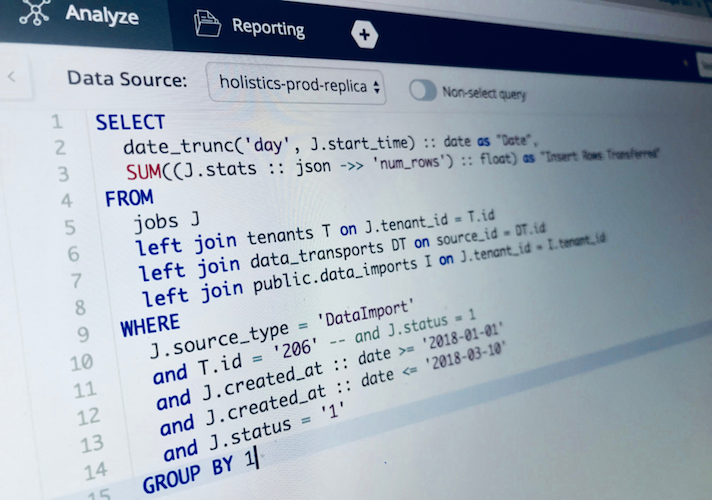Learning SQL - Why it is critical for Analysts
As a derivative of the development of technology, the importance of data to business is indisputable. Converting that information into insights becomes a business advantage. Understanding data flows to be able to work with data is essential for all Analysts.

As a derivative of the development of technology, the importance of data to business is indisputable. Converting that information into insights becomes a business advantage. Understanding data flows to be able to work with data is now essential for all Analysts.
What is an Analyst?
Before going into detail, let’s clear up some concepts.
An analyst is an individual who performs analysis of a topic, ranging from Financial Analysts, Product Analysts, Payment Analysts, etc.
Besides knowledge of their specific fields, an Analyst is expected to have the skills to deal with the quality of data in information systems, reporting of information, and the development and maintenance of analytical tools. They also typically work on the integration of data flows between systems, supervision and monitoring of business applications, as well as analysis of data.
Here is the obvious truth: Analysts coming from technical or programming backgrounds get-things-done faster and more efficiently, when it comes to hands-on data tasks or working with IT teams.
I believe most enthusiastic analysts with non-technical backgrounds, wanting to address this gap in their skills, will then ask the question: How can I be efficient like that? What skills and knowledge do I need to acquire?
Which leads to the following:
Why learning SQL is critical for Analysts?
SQL (pronounced "ess-queue-el") stands for Structured Query Language. SQL is a “standard language” for communicating with a database.
Just like how learning a foreign language will open doors for you to understand the country's culture better, by learning SQL, not only will you learn to work directly with data, but also gain a highly useful and improved understanding of data flows in information systems.
With such knowledge, you can then better understand and interpret reports that contain results from databases, enabling you to conduct a deeper analysis of the data stored in relational databases. In addition, it allows you to better communicate with developers and database administrators, now that you can speak their language and appreciate their challenges!
Sounds good, so where should I get started?
Here is list of key SQL-related topics that an Analyst should know:
- Database & SQL concepts: Data Types, Tables, Entities, Relationships
- Basic SQL Syntaxes and Data Event Tracking Mechanism
- Advanced SQL Syntaxes: CTE, Joint and Analytical Thinking
More details and concrete information of such topics are provided on the Holistics blog, so stay tuned! We’re also launching a SQL Class series for Analysts in Vietnam, Singapore, Indonesia and Thailand! If you're interested, get in touch here.
The best way of learning is by doing. Don't just learn the concepts, but also find sample databases and practice writing SQL yourself. Do talk to other analysts and learn from your peers too! You'll be amazed at how quickly you can pick up this new skill.
What's happening in the BI world?
Join 30k+ people to get insights from BI practitioners around the globe. In your inbox. Every week. Learn more
No spam, ever. We respect your email privacy. Unsubscribe anytime.

